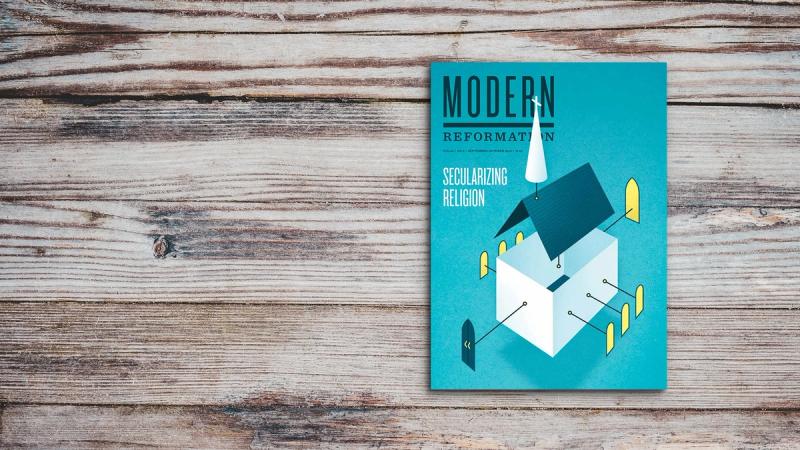Modern Reformation does not believe that the world today is necessarily any more sinful now than it was five hundred or a thousand years ago. Scripture speaks simply of two ages after the fall of Adam: this present evil age and the age that is to come (Heb. 6:5; 2 Cor. 4:4). To be sure, Jesus did inaugurate his kingdom decisively over two thousand years ago, and his rule does break into our lives by his grace so that we already anticipate something of the age to come. But for the moment we live in this age that is “passing away,” an evil age that defines our day just as much as it did in the days of the apostles’or the days of Charlemagne, Henry VIII, and George Washington (Gal. 1:4; 1 Cor. 7:31). This does not mean, however, that cultures do not manifest human sinfulness in peculiar ways at different times, or that the church does not wax and wane in holiness. In fact, one could argue from Scripture that each period of history is likely to manifest certain unique aspects of our sinful condition, ones that are always fraught with new dangers for the church.
This issue introduces a challenging debate that has raged over the past twenty-five years: The question of whether and how the modern world has transformed religion in general and Christianity in particular. Largely academic and usually referred to as the “secularization debate,” its significance for our lives together as Christians is enormous.
We think it is such an important debate that we are asking you to put on your thinking caps and work through these essays with patience and care. We let Steve Bruce, one of the leading proponents of the “secularization thesis,” introduce the topic before Editor-in-Chief Michael Horton elaborates and explains its significance for lay Christians in a series of short essays. There are several surprising conclusions to draw, starting with the notion that much of the way the evangelical faith is practiced today is itself part of the secularizing transformation of Christianity.
Other articles in this issue are given over to provocative explorations of human sinfulness in different times and cultural locations: Rev. Zach Keele on the wickedness cultivated in Israel and God’s roaring justice revealed in Lamentations; C. R. Wiley and David Stocker on church architecture in this passing “post-industrial” age; Lutheran professor Piotr MaÅ?ysz on consumer dynamics in the megachurch; and Shane Rosenthal on cultural apologetics.
Pointing out the fact that the world and the church experience secularization is not meant to scare believers, like so many dispensationalist “Left Behind” stories. This issue is not about fear mongering. Nor is it meant to spark a new revival or awakening of religion, which is itself a failed modern response to secularization. Rather, we hope to motivate laypeople and leaders to pursue a reformation of the church. It is not just the recovery of sound doctrine that will ward off secularization. One take-away from this issue is that we must recover the routines and practices of faith that center on the public ministry of Word and Sacrament and extend to a life of discipleship. For these practices of faith presuppose a different reality than our secularized age, one in which we are God’s creatures, fallen in sin but redeemed by Christ, receiving a kingdom that cannot be shaken.





